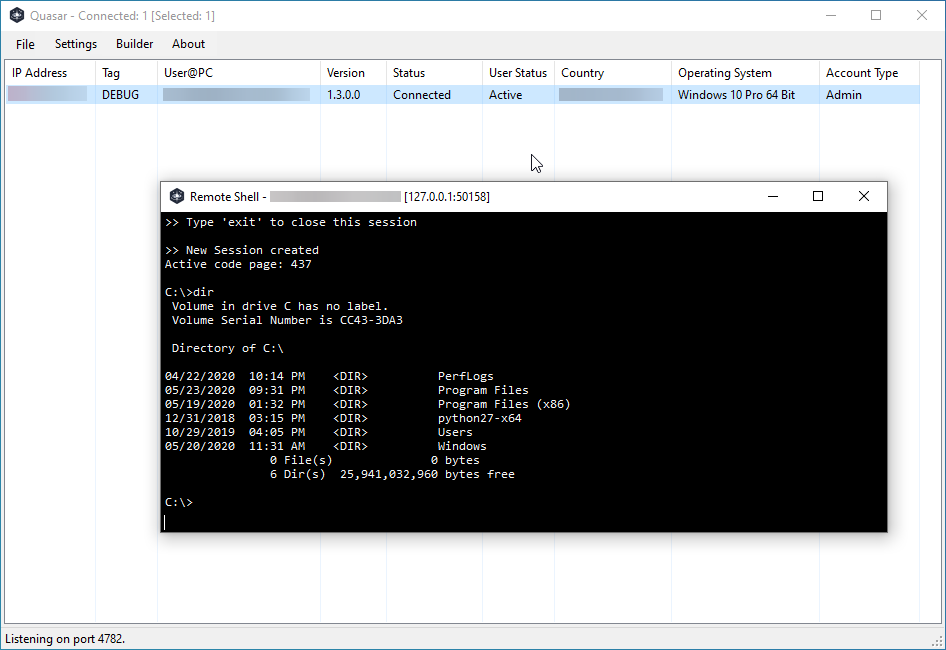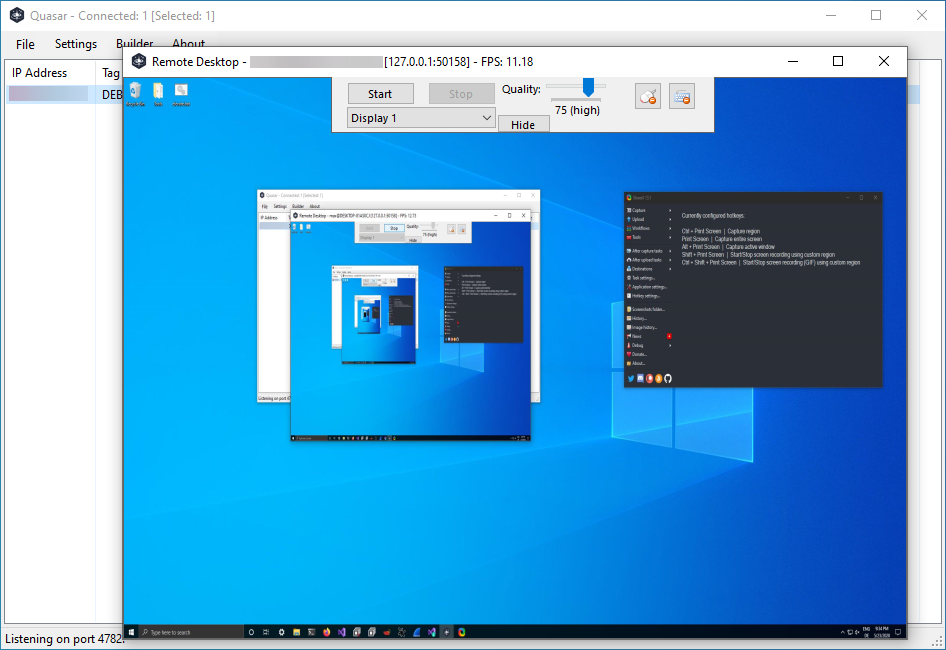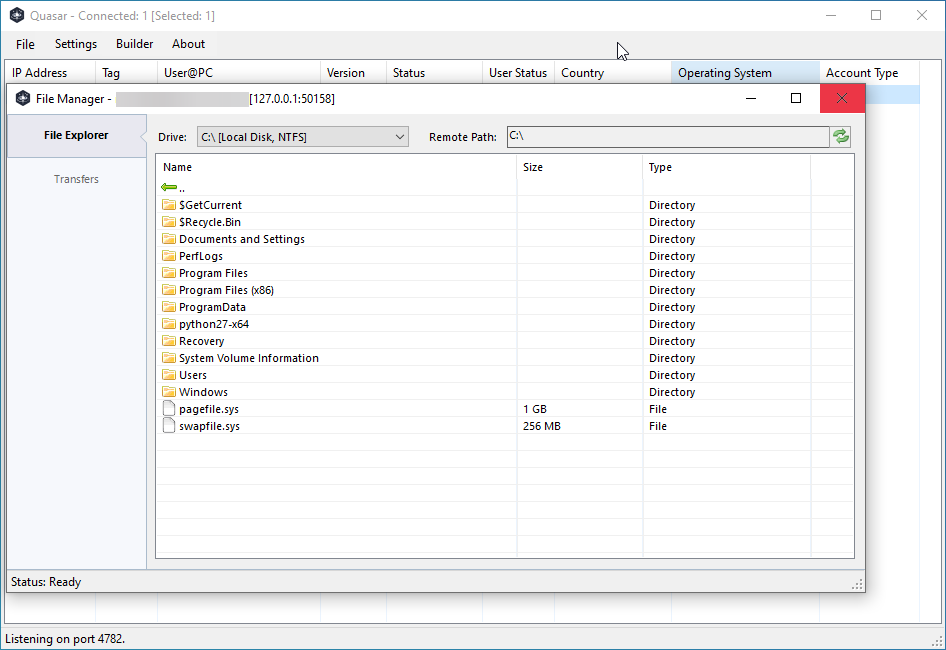Free, Open-Source Remote Administration Tool for Windows
Quasar is a fast and light-weight remote administration tool coded in C#. The usage ranges from user support through day-to-day administrative work to employee monitoring. Providing high stability and an easy-to-use user interface, Quasar is the perfect remote administration solution for you.
- TCP network stream (IPv4 & IPv6 support)
- Fast network serialization (Protocol Buffers)
- Compressed (QuickLZ) & Encrypted (TLS) communication
- UPnP Support
- Task Manager
- File Manager
- Startup Manager
- Remote Desktop
- Remote Shell
- Remote Execution
- System Information
- Registry Editor
- System Power Commands (Restart, Shutdown, Standby)
- Keylogger (Unicode Support)
- Reverse Proxy (SOCKS5)
- Password Recovery (Common Browsers and FTP Clients)
- ... and many more!
- Latest stable release (recommended)
- Latest development snapshot
- .NET Framework 4.5.2 or higher
- Supported operating systems (32- and 64-bit)
- Windows 10
- Windows Server 2019
- Windows Server 2016
- Windows 8/8.1
- Windows Server 2012
- Windows 7
- Windows Server 2008
- Windows Vista
- For older systems please use Quasar version 1.3.0
Open the project Quasar.sln in Visual Studio 2019+ with installed .NET desktop development features and restore the NuGET packages. Once all packages are installed the project can be compiled as usual by clicking Build at the top or by pressing F6. The resulting executables can be found in the Bin directory. See below which build configuration to choose from.
| Build configuration | Usage scenario | Description |
|---|---|---|
| Debug configuration | Testing | The pre-defined Settings.cs will be used, so edit this file before compiling the client. You can execute the client directly with the specified settings. |
| Release configuration | Production | Start Quasar.exe and use the client builder. |
See CONTRIBUTING.md
See ROADMAP.md
See the wiki for usage instructions and other documentation.
Quasar is distributed under the MIT License.
Third-party licenses are located here.
I really appreciate all kinds of feedback and contributions. Thanks for using and supporting Quasar!




